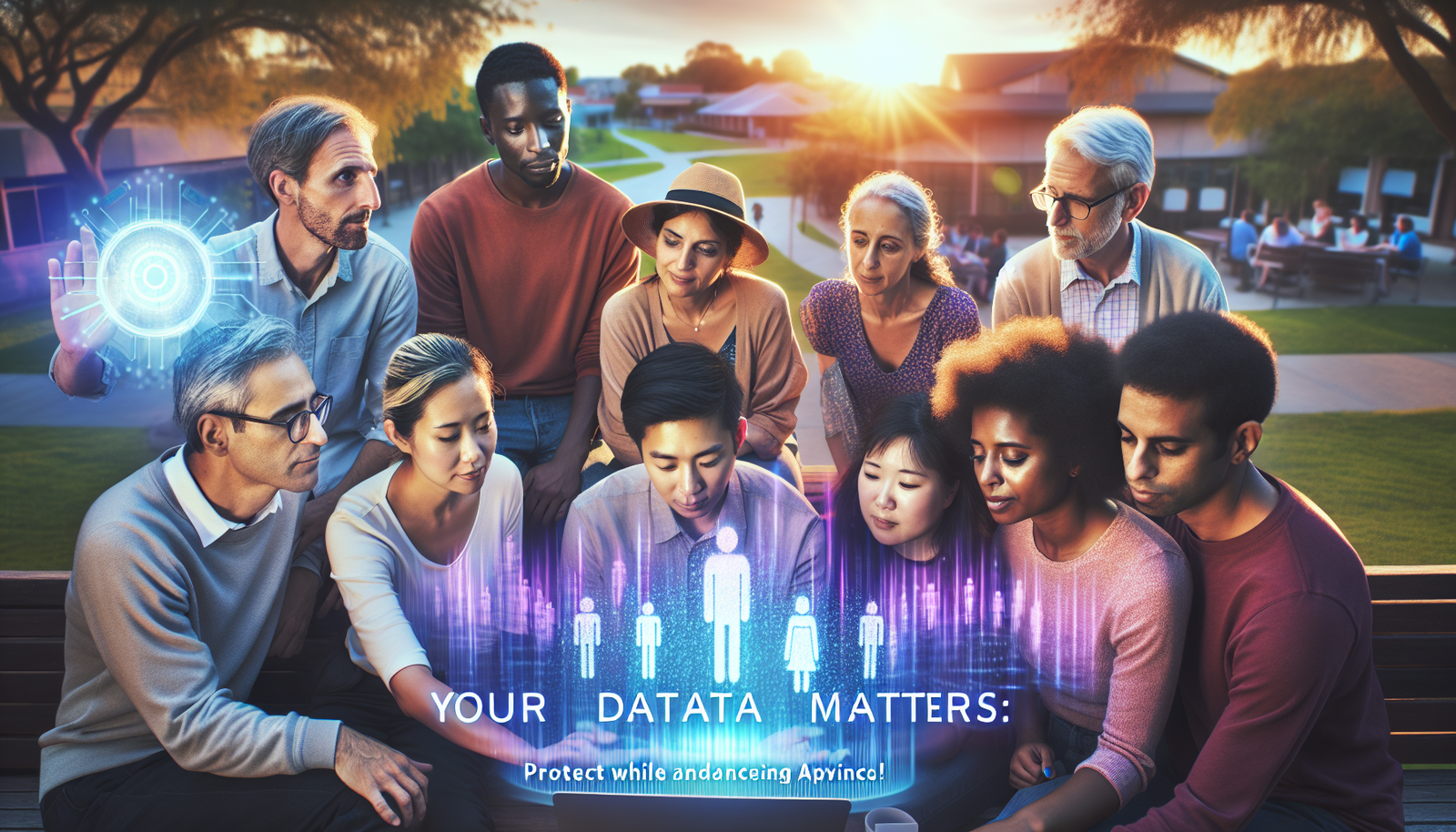Protecting personal data is non-negotiable. The rapid rise of artificial intelligence raises crucial ethical and societal questions. The implications for privacy are decisive. Real stakes of responsibility emanate from the technologies that shape our daily lives. Innovation must not come at the expense of our rights. The balance between democratization of AI and protection of individuals proves to be critical for the future. Regulation is imperative to ensure informed technological progress that respects human dignity.
The necessity of a balance between innovation and protection
The accelerated development of artificial intelligence (AI) sparks passionate debates regarding the preservation of personal data. Marie-Laure Denis, president of the National Commission for Informatics and Liberties (CNIL), raises legitimate questions about the regulation of this technology. Her statements encourage reflection on the challenge of safeguarding privacy while promoting innovation.
Companies, especially those operating in the digital sphere, often express their desire to freely access user data. They argue that this would be an essential driver for innovation. However, each technological advancement should not come at the expense of personal data security, which remains a fundamental pillar of public trust.
The debates within regulatory bodies
Current discussions are shifting towards the regulation of AI and the use of personal data. Meta, the social media giant, advocates for the reuse of this information to train its AI models. Data protection authorities, like their Irish counterparts, are examining the competitive implications of such reuse, while highlighting that data commonly considered public may contain personal elements.
Clearview AI, for instance, was reprimanded by the CNIL after using images posted on social media to feed its facial recognition software. This incident illustrates that the mere accessibility of data is not sufficient to justify its use. Compliance with the General Data Protection Regulation (GDPR) must guide every step of the AI model training process.
Call for proactive regulation
Marie-Laure Denis calls for the adoption of proactive regulation to better frame the use of algorithms in public services and work systems. Experiments, like algorithmic video surveillance during the Paris Olympics, must undergo thorough evaluations before considering their permanence. Such an approach would ensure that technology truly serves the interests of society without compromising individual freedoms.
The concerns expressed by the CNIL also extend to how AI models could alter market power dynamics. Allowing companies to exploit user data to strengthen their position could pose a threat to fair competition. Therefore, a well-established regulatory framework appears essential to prevent any potential abuse.
The obligations of companies regarding personal data
Digital actors must be aware of their responsibilities regarding personal data. The CNIL recommends adopting clear procedures to guarantee informed consent from users when using their data for training purposes. Inaction or negligence in this regard could lead to sanctions and harm corporate image.
The debate over the exploitation of personal data by companies such as Meta is just beginning. Upcoming decisions from regulatory authorities will shape the AI landscape for years to come. Companies must anticipate these changes, not only to comply with laws but also to preserve the trust of their users.
The dangers of lax regulation
A relaxation of data protection standards could have disastrous consequences for privacy. Scandals related to personal data breaches highlight the urgency for rigorous regulation. Consumers, particularly the most vulnerable, must be protected from potential abuses related to the exploitation of their information. Technology developers must recognize the importance of integrating ethical principles from the outset of their projects.
AI systems, especially those operating in sensitive environments, require robust oversight. Strict monitoring of algorithms to prevent discrimination in public services or the labor market is a necessity. Governments and institutions must collaborate with companies to establish clear guidelines, ensuring that innovation never undermines individuals’ fundamental rights.
Today, the protection of personal data represents a sine qua non condition for the development of AI.
The current stakes clearly highlight that the use of personal data cannot occur without strict respect for users’ rights. Companies should not view regulation as an obstacle to development but as an opportunity to build a respectful and ethical technological future. The future will depend on the ability to reconcile innovation and respect for privacy.
Frequently asked questions about the preservation of personal data and artificial intelligence
Why is the protection of personal data essential in the development of artificial intelligence?
The protection of personal data is crucial to ensure users’ privacy, prevent data abuses, and maintain public trust in artificial intelligence technologies. Without this protection, users may be exposed to violations of their privacy and unauthorized uses of their information.
How can artificial intelligence be developed while respecting individuals’ rights to their data protection?
It is possible to develop artificial intelligence ethically by implementing strict regulations, transparent consent policies, and integrating data protection mechanisms from the design of AI systems.
What are the risks associated with the use of personal data in machine learning?
Risks include the possibility of discrimination, abusive profiling of users, and privacy violations if personal data is not properly anonymized or secured.
Can companies use personal data to train artificial intelligence models without consent?
No, according to regulations such as the GDPR, companies must obtain explicit consent from users before using their personal data to train AI models.
What measures can be taken to ensure that AI technology does not compromise data protection?
It is imperative to adopt data protection practices, such as encryption, data anonymization, and conducting privacy impact assessments to minimize potential risks.
How can users protect their personal data against AI?
Users can protect their data by being cautious about the information they share, adjusting their privacy settings on digital platforms, and being informed of their rights regarding data protection.
What role do regulations, such as the GDPR, play in the responsible development of AI?
Regulations like the GDPR establish key standards that require companies to respect users’ rights, ensuring that AI development occurs ethically and with respect for privacy.






